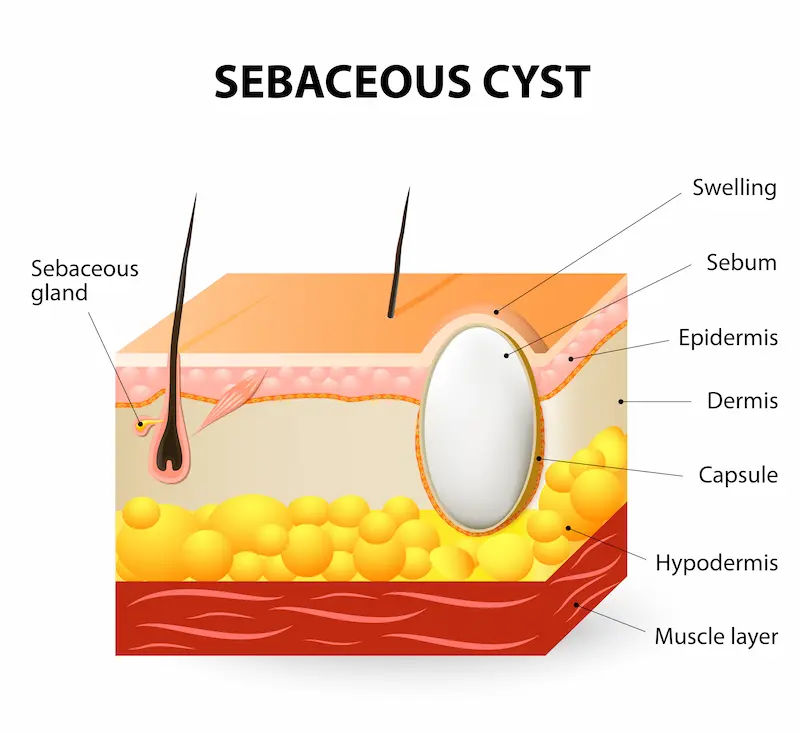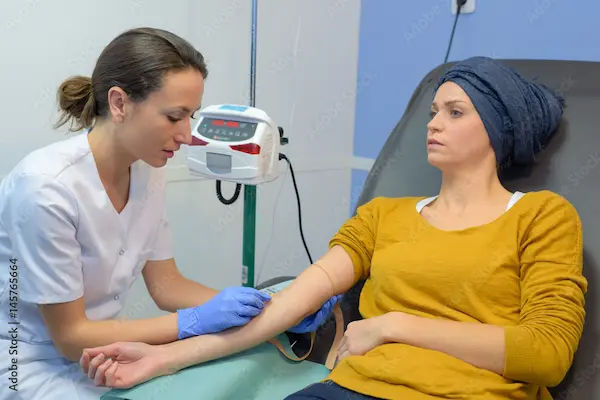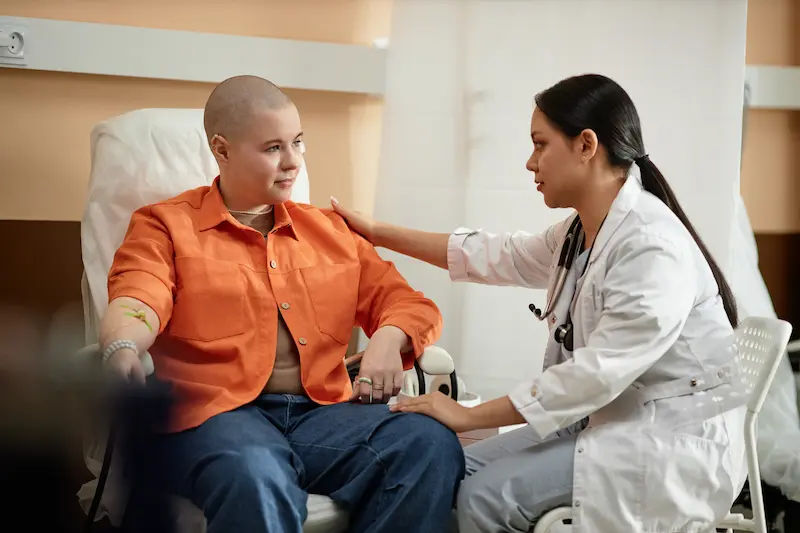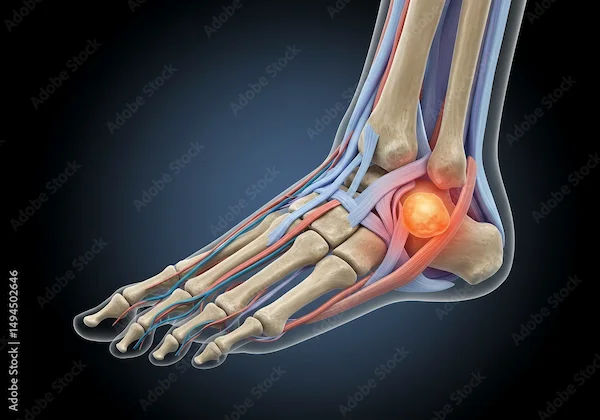Kaposi Sarcoma Overview: Symptoms, Causes, Treatment
Kaposi Sarcoma is a type of cancer that forms lesions on the skin, lymph nodes, and internal organs. Learn about its symptoms, causes (including HIV/AIDS), and various treatment options.

Written by Dr. M L Ezhilarasan
Reviewed by Dr. Shaik Abdul Kalam MD (Physician)
Last updated on 13th Jan, 2026

Kaposi Sarcoma (KS) is a rare type of cancer that affects the skin, lymph nodes, and sometimes internal organs. It is caused by a virus called human herpesvirus 8 (HHV8) and often appears as purple, red, or brown lesions on the skin. While KS can be serious, early detection and treatment can help manage the condition effectively.
This article will guide you through the symptoms, causes, diagnosis, and treatment of Kaposi Sarcoma in simple terms. We’ll also discuss lifestyle tips and when to seek medical help.
What is Kaposi Sarcoma?
Kaposi Sarcoma is a cancer that develops in the cells lining blood or lymph vessels. It leads to abnormal tissue growth, forming tumors or lesions on the skin or inside the body. There are four main types of KS:
Classic KS – Mostly affects older men of Mediterranean or Eastern European descent.
Epidemic (AIDSrelated) KS – Occurs in people with weakened immune systems, especially those with HIV/AIDS.
Endemic (African) KS – Found in parts of Africa, affecting younger individuals.
Iatrogenic (Transplant-related) KS – Develops in people who take immunosuppressive drugs after organ transplants.
Symptoms of Kaposi Sarcoma
The most common sign of KS is skin lesions, which may appear as:
Flat or raised patches (red, purple, brown, or black)
Painless or mildly painful sores
Swelling in legs or face (if lymph nodes are affected)
If KS affects internal organs (like the lungs, stomach, or liver), symptoms may include:
Shortness of breath (lung involvement)
Bleeding or digestive issues (stomach or intestines affected)
Swollen lymph nodes
If you notice any unusual skin changes or persistent symptoms, consult a doctor.
What Causes Kaposi Sarcoma?
The primary cause is infection with human herpesvirus 8 (HHV8). However, not everyone with HHV8 develops KS. The risk increases if:
Your immune system is weak (due to HIV/AIDS, organ transplant medications, or other conditions).
You are older (Classic KS mostly affects men over 50).
You have a genetic predisposition (common in certain ethnic groups).
Unlike other cancers, KS is not caused by smoking, diet, or environmental factors.
Consult an Oncologist for personalized consultation
How is Kaposi Sarcoma Diagnosed?
Doctors use several tests to confirm KS:
1. Physical Exam – Checking skin lesions.
2. Biopsy – Taking a small tissue sample for lab testing.
3. Imaging Tests – X-rays, CT scans, or endoscopy to check internal organs.
4. HIV Test – Since KS is linked to weakened immunity.
If you suspect KS, early diagnosis is crucial for effective treatment.
Treatment Options for Kaposi Sarcoma
Treatment depends on the type and severity of KS, as well as the patient’s overall health. Options include:
1. For Skin Lesions:
Topical Treatments – Creams or gels to shrink small lesions.
Radiation Therapy – Targets localized tumors.
Cryotherapy – Freezing lesions to remove them.
2. For Advanced or Internal KS:
Chemotherapy – Drugs to kill cancer cells (used if KS spreads).
Immunotherapy – Boosts the immune system to fight KS.
Antiretroviral Therapy (ART) – If HIV-related, controlling HIV helps manage KS.
3. Lifestyle & Supportive Care:
Healthy Diet – Strengthens immunity.
Regular Checkups – Monitors progression.
Emotional Support – Counseling or support groups help cope with diagnosis.
Can Kaposi Sarcoma Be Prevented?
While HHV8 infection cannot always be prevented, you can reduce risks by:
Managing HIV effectively (if applicable).
Avoiding immunosuppressive drugs unless necessary.
Practicing safe sex (since HHV8 can spread through saliva and sexual contact).
When to See a Doctor?
Consult a healthcare provider if you notice:
Unexplained skin lesions
Persistent swelling or pain
Breathing difficulties or digestive problems
If you have HIV or a weakened immune system, regular screenings help detect KS early.
Final Thoughts
Kaposi Sarcoma is a manageable condition with proper medical care and lifestyle adjustments. If you or a loved one has symptoms, early diagnosis and treatment can make a big difference.
For expert advice, consider booking a consultation with an oncologist or dermatologist through Apollo 24|7. Early detection saves lives!
Stay informed, stay healthy.
Need Help?
Call Apollo 24|7 or book an appointment online for specialized care.
Consult an Oncologist for personalized consultation
Consult an Oncologist for personalized consultation

Dr. Amit Choraria
Surgical Oncologist
18 Years • MBBS, MS (Surgery) Fellow, Surgical Oncology, Tata Medical Center (FSO) Fellow, European Board of Surgery (Surgical Oncology) (FEBS) Fellow, Minimal Access Surgery (FMAS) Fellow, Indian Association of Gastrointestinal Endosurgeons (FIAGES) UICC Fellow, Royal Marsden NHS, London, UK Visiting Scholar, Plastic Reconstructive Surgery, CGMH, Taiwan Fellow, Robotic Surgical Oncology, Vattikuti Foundation, USA
Kolkata
Apollo Multispeciality Hospitals , Kolkata, Kolkata
(75+ Patients)

Dr Gowshikk Rajkumar
Oncologist
10 Years • MBBS, DMRT, DNB in Radiation oncology
Bengaluru
Apollo Clinic, JP nagar, Bengaluru

Dr. Sanchayan Mandal
Medical Oncologist
17 Years • MBBS, DrNB( MEDICAL ONCOLOGY), DNB (RADIOTHERAPY),ECMO. PDCR. ASCO
Kolkata
MCR SUPER SPECIALITY POLY CLINIC & PATHOLOGY, Kolkata

Dr. Rupam Manna
Radiation Specialist Oncologist
7 Years • MBBS MD(RADIO THERAPY), CCEBDM
Barasat
Diab-Eat-Ease, Barasat
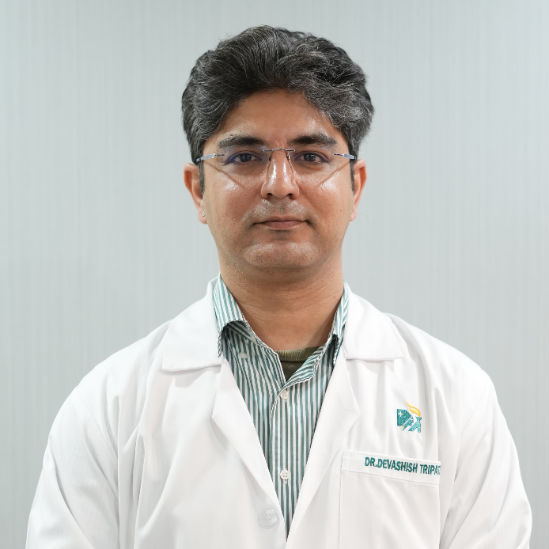
Dr Devashish Tripathi
Radiation Specialist Oncologist
20 Years • MBBS, PLAB, MRCP (UK)- General Medicine, FRCR (Oncology), Certificate of Completion of Training (CCT)- Clinical Oncology
Delhi
Apollo Hospitals Indraprastha, Delhi
